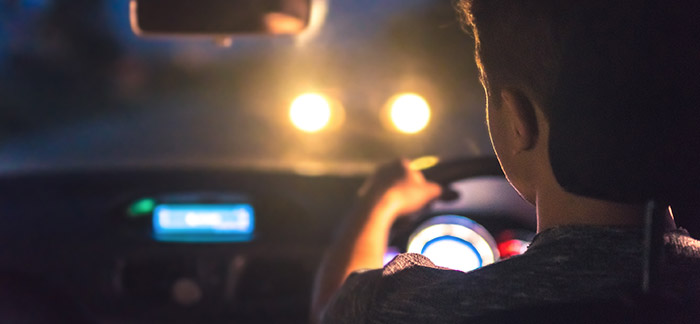
You might be suffering from night blindness if you are experiencing difficulty focusing in dim light, discomfort when moving from a bright environment to a darker one and problems adapting to sudden bright lights (for example, car headlights of street lights) which can make driving at night difficult.
Nyctalopia is the medical term for night blindness, an inability to see well at night or in poor lighting conditions which happens as a result of underlying eye conditions. Even though the condition might be confused with actual blindness, this isn’t the case - you may just have more difficulty seeing or driving in darkness than your fellow road users.
For you to accurately diagnose nyctalopia for yourself, you will first need to understand how your eyes work in low light conditions and how common eye conditions can impact vision in different ways.
How do we see in the dark?
- Light passes through the cornea to enter the pupil. Where the cornea is not clear or distorted, it’s harder to create a clear image.
- When it's dark, the pupil gets bigger (dilates) to allow as much light as possible to enter the eye and reach the retina. In bright light, the pupil gets smaller (constricts), allowing only enough light to see properly.
- Once light enters the eye, it passes through the lens, which focuses light onto the retina. When there is low light, it makes it harder to create a clear image.
- The retina is the 'screen' to your pupil 'projector' onto which images are shone. It consists of rods and cones. The cones are responsible for helping us see in detail and colour, but they need a lot of light to work well, which explains why we don’t distinguish colours or detail well in low light.
If an underlying eye condition affects one or more of these parts of the eye, it can make it even more difficult to see in dark conditions, leading to night blindness. A few eye conditions that can cause night blindness, include nearsightedness, cataracts and Usher syndrome - a genetic condition that affects both hearing and vision.
How is night blindness detected?

Because night blindness is a symptom of a range of existing eye conditions, your optometrist will need to perform a range of tests to accurately diagnose the underlying cause. For example, checking the pressure in your eyes (a key indicator of glaucoma), assess your ability to focus at distance to see if you’re short-sighted, long-sighted or have astigmatism, as well as assessing the health of vital structures in your eyes.
What are the treatment options for night blindness?
If your symptoms are caused by nearsightedness, cataracts, or vitamin A deficiency these are treatable with corrective lenses, such as spectacles or contacts.
How can I prevent night blindness?
You can’t prevent night blindness that’s the result of birth defects or genetic conditions. You can, however, properly monitor your blood sugar levels and eat a balanced diet to make night blindness less likely.
If you suspect you have night blindness, you should take precautions to keep yourself and others safe. Make an appointment to see your optometrist to get the necessary interventions you require prescribed as soon as possible and whenever possible refrain from driving at night.
Date Published: 15 April 2021